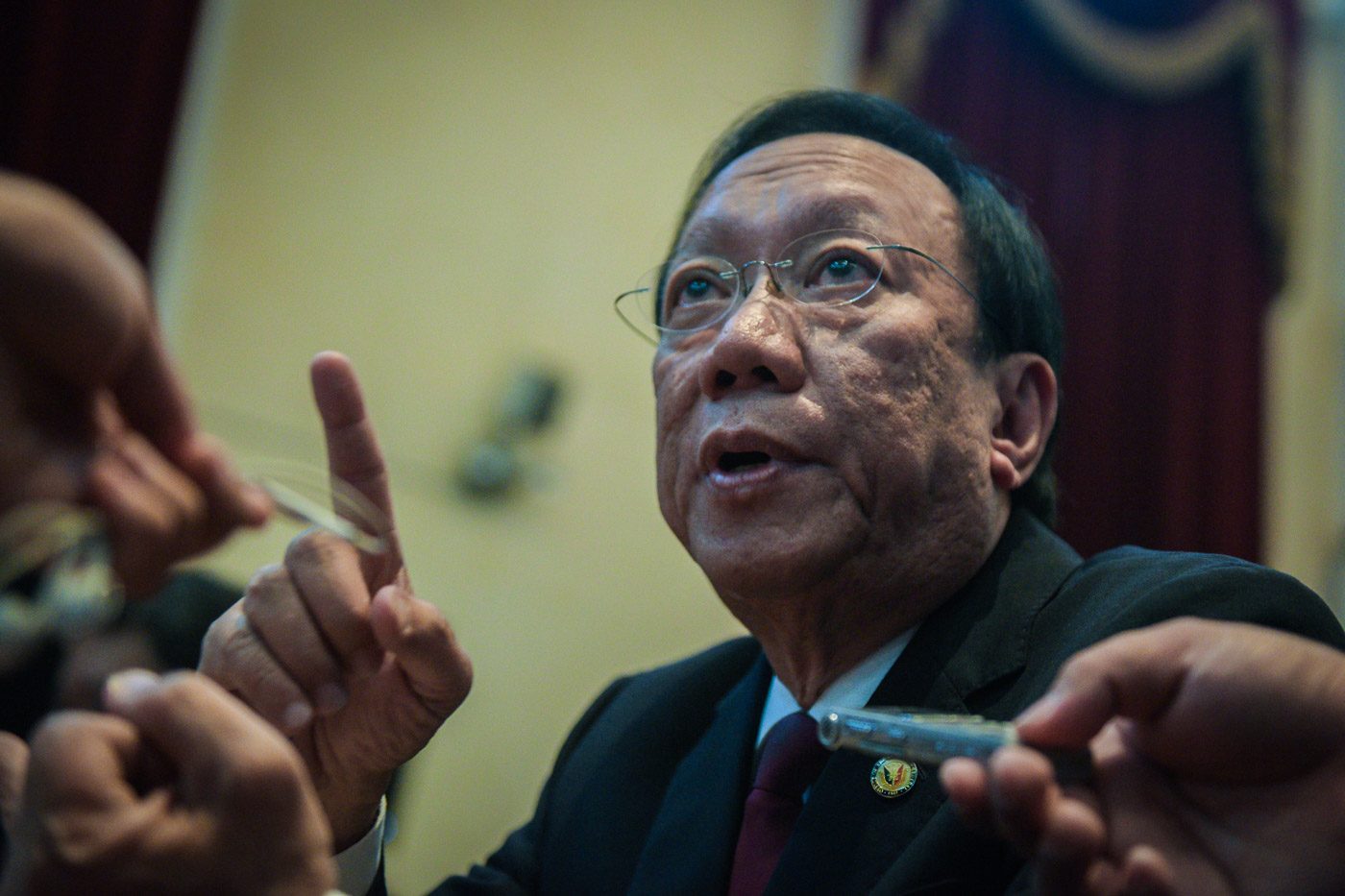SUMMARY
This is AI generated summarization, which may have errors. For context, always refer to the full article.

MANILA, Philippines – Solicitor General Jose Calida has officially entered into court records the argument that Senator Antonio Trillanes IV’s amnesty must be voided because it was the former defense secretary, and not the former president, who signed his amnesty papers.
It’s an argument not cited in President Rodrigo Duterte’s Proclamation No. 572 that voided Trillanes’ amnesty for supposedly not complying with requirements. It was a belated argument that Duterte floated in the first weekend after chaos erupted over gaps and retractions by the government in its attempt to implement Duterte’s proclamation.
In his 81-page comment submitted to the Supreme Court on Monday, September 24, Calida said that “neither the Department of National Defense (DND) Secretary nor a Special Committee could grant or approve amnesty.”
Calida is submitting a comment on behalf of the executive branch, after Trillanes filed a petition seeking to nullify the proclamation.
Constitutional law professor Tony La Viña had earlier said that the Supreme Court must not recognize the Gazmin argument because it was not cited in the proclamation, which is the subject of the petition. La Viña said Duterte must first amend his proclamation.
Legal basis
Duterte believes that former DND secretary Voltaire Gazmin committed usurpation of authority by signing Trillanes’ amnesty papers, even though 5 other presidents before Benigno “Noynoy” Aquino III also delegated the approval of amnesty applications to their designated panels or committees.
This includes the grant of amnesty to now military chief General Carlito Galvez Jr, which former president Fidel Ramos delegated to a committee.
Calida’s legal basis is the Supreme Court decision on Villena vs Secretary of the Interior, where the Court upheld the power of the interior secretary to suspend an official because it was approved or ratified by the president.
In that decision, the SC said:
“There are certain constitutional powers and prerogatives of the Chief Executive of the Nation which must be exercised by him in person and no amount of approval or ratification will validate the exercise of any of those powers by any other person. Such, for instance, is his power to suspend the writ of habeas corpus and proclaim martial law and the exercise by him of the benign prerogative of mercy.”
Using that excerpt, Calida said: “Otherwise stated, the power to grant clemency is a non-delegable power and must be exercised by the President personally.”
“As such, SND Gazmin’s act of granting amnesty, as he did to petitioner, was ultra vires and therefore illegal,” said Calida.
Clemency different from amnesty
There is, however, a clear difference between clemency/pardon and amnesty as seen in Section 19, Article VII of the Constitution. (READ: LIST: False claims of Duterte, Panelo about legal issues on Trillanes amnesty)
The President may grant reprieves, communications and pardons without additional requirements, whereas the President can grant amnesty “with the concurrence of a majority of all the Members of the Congress.”
Constitutional law professor Dan Gatmaytan said the Constitution “did not say that [the president] has to sign everything personally.”
Gatmaytan added that by signing the amnesty papers, Gazmin “never assumed any power that belongs to the president.”
Aquino’s Proclamation No. 75 which granted amnesty assigned Gazmin to “receive and process” amnesty applications.
La Viña said it is enough that Aquino signed the proclamation himself.
“There is a difference between granting amnesty done through proclamation, which only the President can sign and concurred in by Congress, and the availing of amnesty through an administrative process, which is always delegated to a responsible official,” La Viña said.
Duterte has since revealed it was Calida who started the review process of Trillanes’ amnesty. Trillanes is pushing for a Senate investigation into the alleged conflict of interest in the government contracts won by Calida’s security firm. – Rappler.com
Add a comment
How does this make you feel?
There are no comments yet. Add your comment to start the conversation.